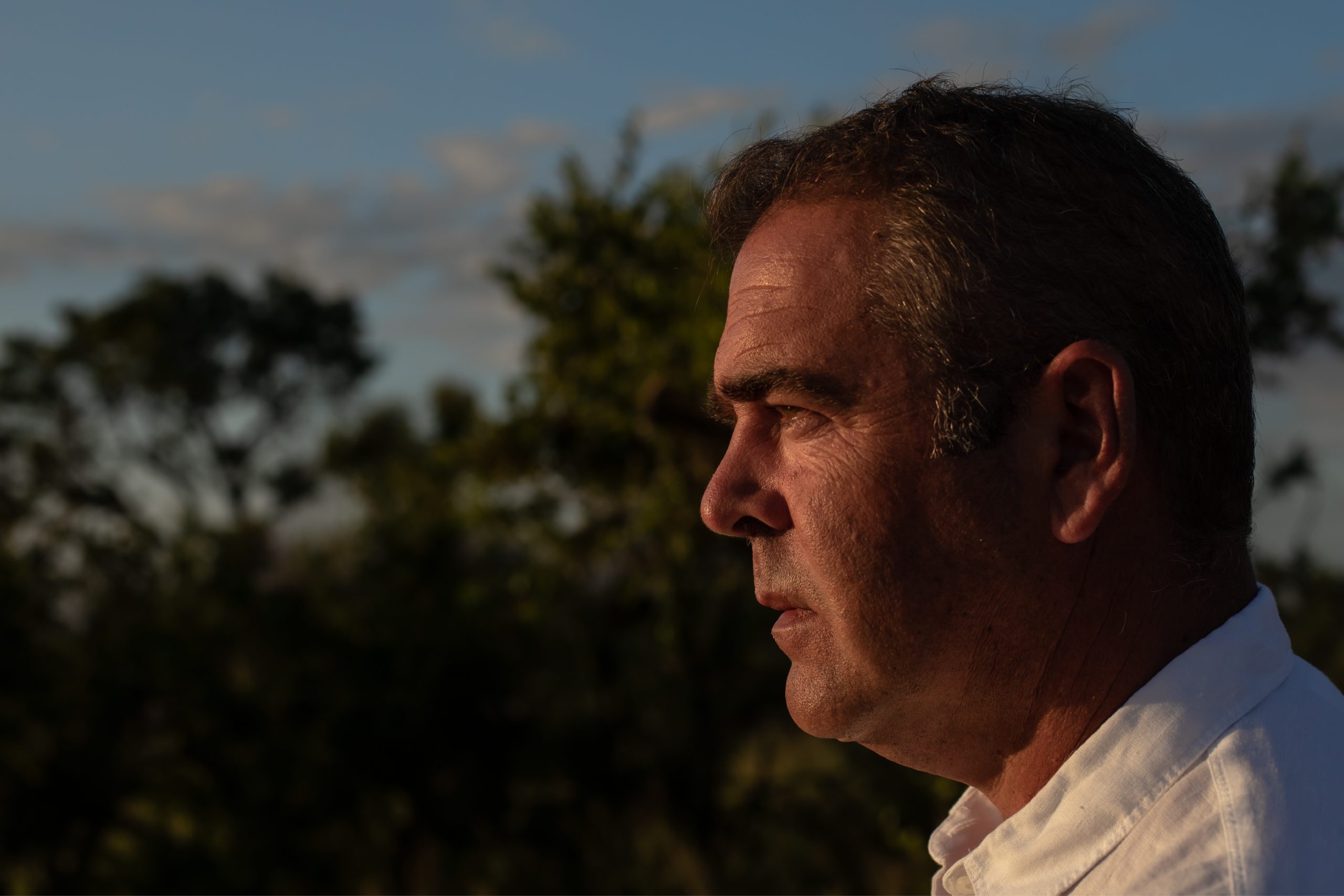At the heart of Intelligent Impact, created by Amplify Investment Partners, is a group of experts that work together tirelessly to effect meaningful investment returns and meaningful change in society and the environment.
Speaking at the Amplify One Moment event held on Friday 4 March, Amplify’s Head, Marthinus van der Nest said that for Amplify, Intelligent Impact starts with being able to intelligently identify the right asset managers for clients. The impact Amplify aims for is ensuring it creates wealth for its clients – and that it is a good corporate citizen. “If we are going to grow with lofty ambitions for Amplify and our brand, we want to be in a position to contribute and create a better tomorrow,” Van der Nest said. A thriving economy is dependent on the ability to create jobs and alleviate poverty by supporting the tourism sector and ensuring wildlife is preserved for generations to come.
This has inspired Amplify’s partnership with two initiatives – the Good Work Foundation based in the Bushbuckridge area, which is addressing education and skills development in the area, and the SANparks Environmental Crime Investigative Unit, which is working to eliminate Rhino poaching, among other things. Both are initiatives Amplify believes “are critical in addressing some of the structural issues we face in South Africa on a daily basis”.
Head of Strategy, Richard Bray, said Amplify has always worked towards investment goals and to do good in the world “by asking ourselves what can one moment do – can it be the key to better and sustainable investments, can it be used to make a positive impact on our world, and can it lead to a brighter future?”
The answer is Intelligent Impact – approaching investment with a goal of making a lasting and meaningful difference, investing with purpose to generate returns and contributing towards initiatives that matter.
Through next generation asset managers with a unique approach to risk who see opportunities and go with their convictions to get competitive advantages, Amplify’s funds have recorded strong performances, beating inflation, benchmarks and peers.
Some of these managers provided their insights during key panel discussions at the One Moment event.
Macro outlook
Inflation should moderate in the US and South Africa over the course of the year, while remaining sticky early on, Matrix Fund Managers’ Economist and Macro Strategist, Carmen Nel said. The debate is how quickly it moderates, and for South Africa, the big question is what happens to the oil price as we don’t have a lot of pricing power in the economy, where exogenous factors influence inflation. She expected four to five interest rate hikes in the US in 2022, and possibly more in 2023.
Terebinth Capital’s Chief Investment Officer and co-manager of the Amplify SCI* Strategic Income Fund, Erik Nel, expected 2022 to be about coordinated policy exit. Describing the current environment as tricky and tactical, he said the complexity with the current inflation outlook globally is geopolitics. Oil prices are very important in South Africa, and what is currently helping is the rand. If it weakens, however, this can create problems.
What this means for the yield curve, he said, is that it may seem optically steep, and he asked how much of that steepness is a function of our credit-worthiness. He said the good news, such as revenue windfalls, is in the price, and South Africa will have to do the right things for further flattening to take place.
Fixed income tools in a rising inflation environment
Terebinth Capital uses inflation-linked bonds to benefit in a rising inflation environment, said Nomathibana Matshoba, Managing Director at Terebinth Capital and co-portfolio manager of the Amplify SCI* Strategic Income Fund. With structural inflation in South Africa, there is a risk around the possibility of the Reserve Bank reducing the inflation target, and Terebinth was being tactical in investing in the portfolio, which is currently providing inflation protection.
Lourens Pretorius, Head of Fixed Income at Matrix Fund Managers and co-manager on three of the Amplify funds, said the funds’ managers follow an active investment process and therefore invest in more liquidity and high-quality instruments, allowing them to be agile and nimble when adapting to continually changing market conditions. South African Government Bonds are liquid with a better risk rating than local corporate credit and have been a relevant return driver, achieving real returns of 4.5%.
Equity opportunities
There is currently a unique situation, with an unprecedented amount of stimulus being dumped on the world economy and at the same time a lot of demand buying brought forward as spending on services and travel recovers said Leon Michaelides, Portfolio Manager at Matrix and co-manager on the Amplify SCI* Defensive Balanced Fund and Amplify SCI* Absolute Fund. Company profits have grown as supply constraints led to inflation, as companies have sold higher volumes, and as stimulus led to higher valuation multiples.
Investors investing in developed markets are paying a high price for high earnings, which is not sustainable, and earnings growth is starting to slow and multiples are going to be less.
Matrix prefers emerging markets trading on multiples that are far less demanding, with decent earnings growth prospects, and economies are ahead of the curve as far as tightening and withdrawal of stimulus. Within emerging markets, Matrix has a preference for South Africa.
Abax Investments sees the US in particular as being expensively valued, said Matthew de Wet, investment manager at Abax Investments. He said price to sales ratios are at historically high levels, and Abax is wary of the US in particular, but other developed markets such as Europe, the UK and Japan look far more reasonably valued.
“We have been pretty excited about the South African market generally in the past couple of years and we still see value,” he said. There are a number of high quality attractively valued mid-sized business off the radars of most of the large asset managers and a few with extremely good growth prospects. In the Amplify SCI* Flexible Equity Fund, which has a dual objective of upside capture and downside protection, asset allocation and stock selection are vital, including looking at instruments such as convertible bonds, which have bond-like characteristics on the downside and potential equity-like characteristics on the upside.
Jonathan du Toit, of Oystercatcher Investments, believes in being able to identify primary growth stocks, generally a business which is owner-managed and operates in a niche with a strong prospect of growth, as being a competitive advantage of Oystercatcher’s investment process. “We walk a long road with such business owners to ensure we realise the best return for our clients,” he said. Du Toit currently manages Amplify’s long-short equity hedge fund and will be taking over the management of the Amplify SCI* Equity Fund.
Generating meaningful returns
As South Africa is a country dependent on exports of commodities, macro drivers that influence the commodity cycle are absolutely critical including the rand and many of our listed counters, said Richard Simpson director and fund manager at Obsidian Capital and Amplify’s multi strategy hedge fund. For hedge funds, the advantage of being able to short is that the fund can identify assets that are overvalued. “To a degree that helps in terms of volatile markets, but at the end of day, we apply fundamental approach to investing,” he said. This includes assessing valuations, almost irrespective of volatility, and building a portfolio where you think there is enough margin of safety to get through volatile times.
Looking at a long term 60-year history, equities have provided a far bigger return than bond returns, which have only just beaten inflation, said Brian Thomas, Portfolio Manager at Laurium Capital and co-manager on the Amplify SCI* Balanced Fund. While equity returns over the last five years, except last year, have been pretty pedestrian, bonds have performed lately. But Laurium is a firm believer in the equity risk premium, with the difference between the returns on equities relative to bonds over time of roughly 8%. “For a person saving for retirement, being in a high equity product is something you want to be in over the long term.” Laurium takes a macro view on which asset class is going to generate the best risk-adjusted expected return and would have the highest allocation to that within investment parameters. At the moment, it is overweight SA fixed income and SA equities, and underweight the international counterparts.
Iain Power, Chief Investment Officer at Truffle Asset Management, said one of the biggest drivers of returns in the award winning Amplify SCI* Wealth Protector Fund has been the management of risk in building the portfolio in a way that still manages to achieve double digit returns but keeps capital safe. Through stock selection and asset allocation, Truffle managed to avoid areas in sectors which have suffered from contraction or earnings collapses over the last couple of years, which provided a resilient return profile for clients. “We focus on real returns, preservation of capital and looking to only include those shares where there is that asymmetry, where there’s a value underpinning it and where we can see, with relatively low risk, that the securities are able to deliver the CPI plus targets and benchmarks we are looking for.”
Amplify’s One Moment event emphasised that growing your portfolio and making a difference are not mutually exclusive. Its fund managers emphasised that ESG considerations are an integral part of the asset allocation process. Amplify’s aim is first and foremost give the best returns, find the best managers out there and give a percentage of profits to philanthropic initiatives “where we measure the impact of those initiatives,” said Bray. Amplify’s managers are completely aligned with Amplify, “our view on the world, and what we should be doing,” said Van der Nest.











